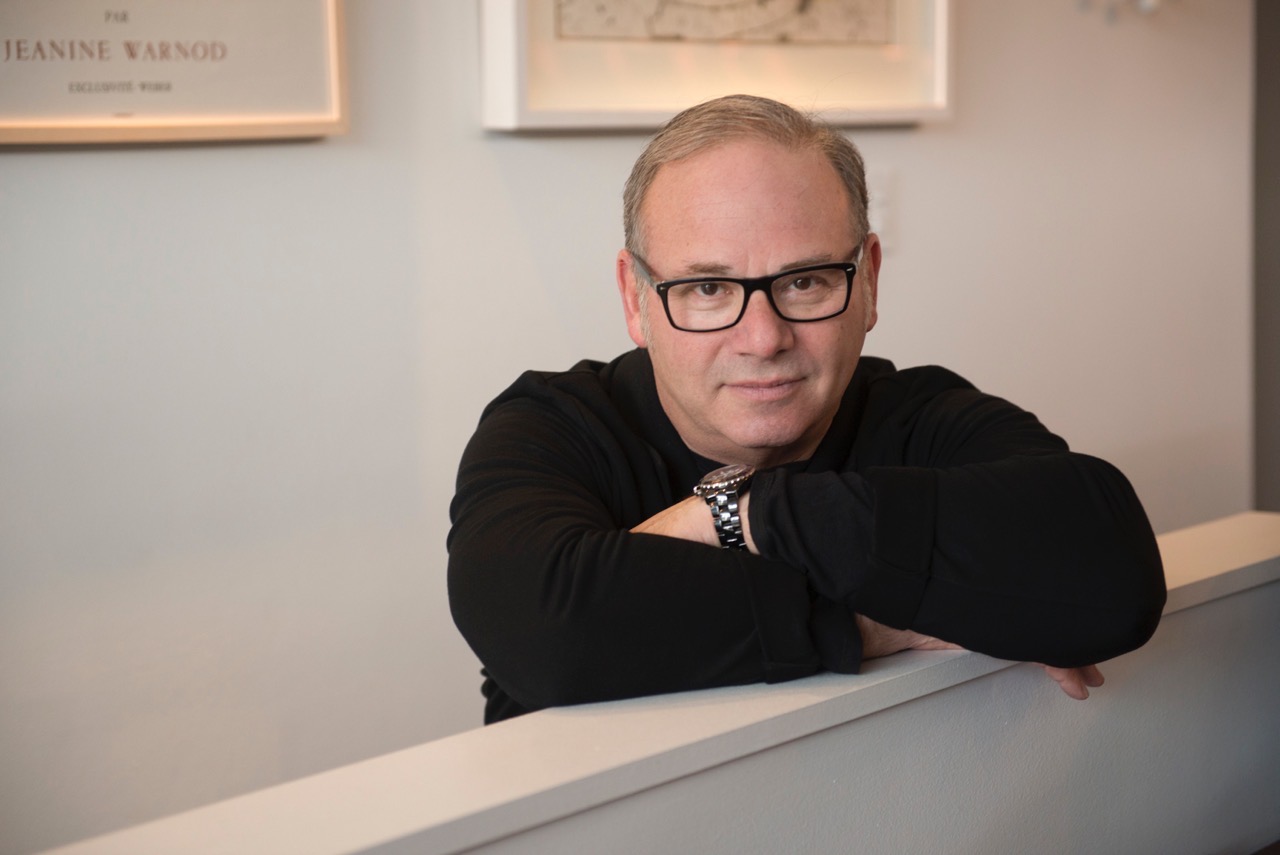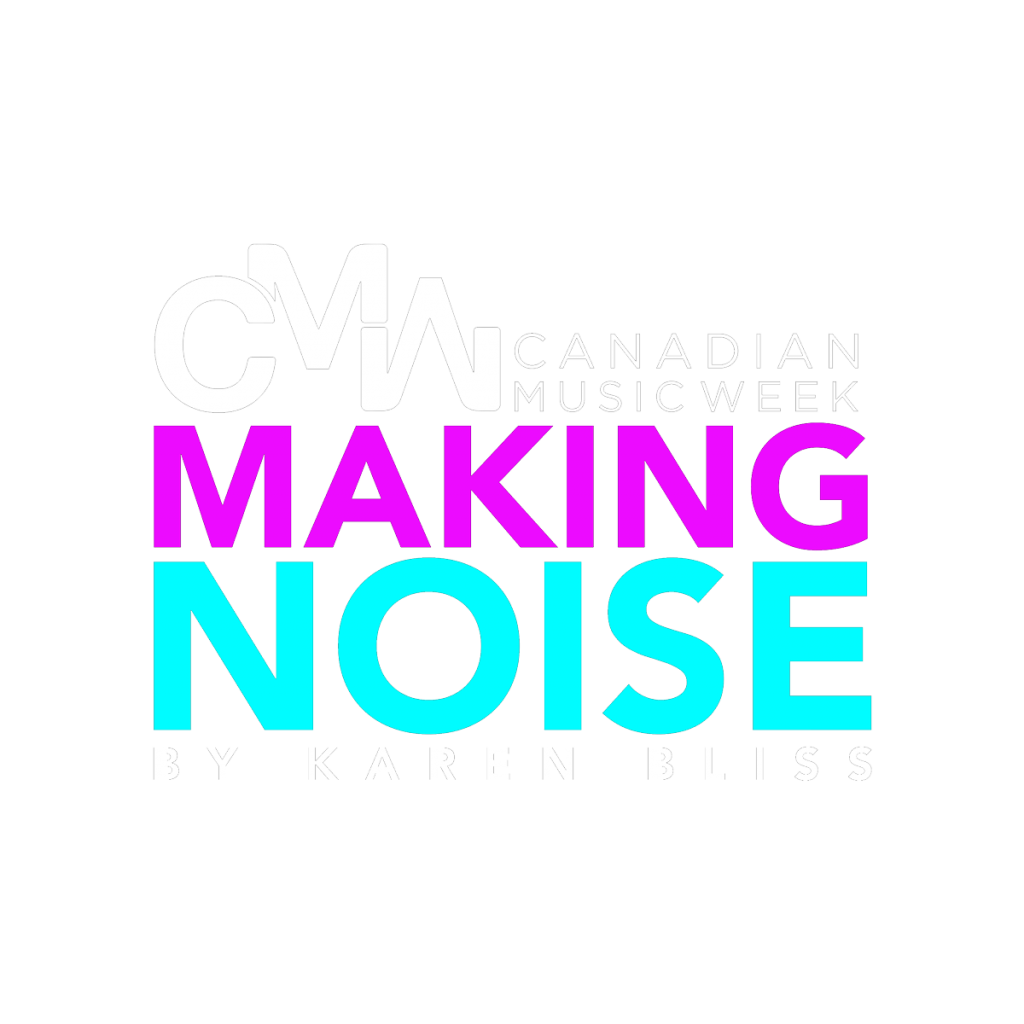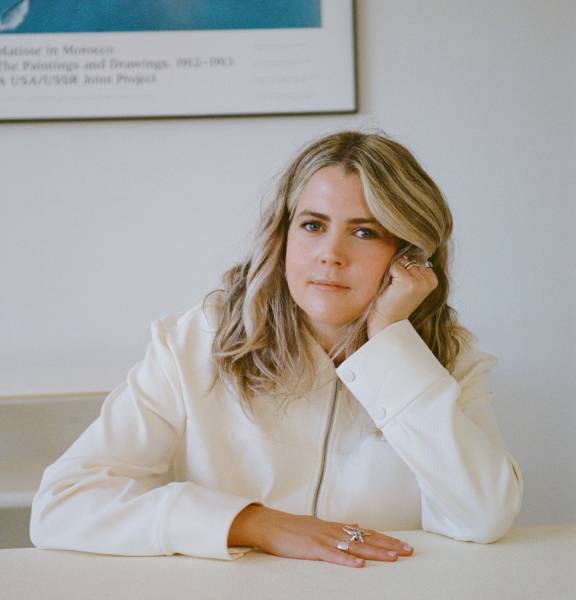
BY KAREN BLISS
Jake Gold likes to manage. From helping his friends find a vintage typewriter to suggesting the best in-home speakers to taking a mesmerizing unknown rock band from Kingston, Ontario, The Tragically Hip, and building them into one of the biggest, most beloved acts Canada has ever produced, he was born to manage.
After 43 years in the music business, Gold will be recognized for this skill. On June 4, he will be inducted into CMW’s Music Industry Hall of Fame, during the 2024 Canadian Live Music Industry Awards, in partnership with the Canadian Live Music Association (CLMA), held at Toronto’s Westin Harbour Castle Hotel.
Gold started working with the remaining members of the band — Bobby Baker, Paul Langlois, Gord Sinclair and Johnny Fay — after frontman Gord Downie’s passing in 2017 and he’s as busy as ever, spearheading numerous projects: the Saskadelphia EP, Road Apples and Phantom Power box sets, Live at the Roxy release, and vinyl offering of Yer Favourites.
In 2023 alone, following the diamond (1 million) certification of their 2005 greatest hits compilation, Yer Favourites, the 25th anniversary box set edition of 1998’s Phantom Power came out (Universal Music Canada), which includes five never before heard songs from the original Steve Berlin sessions. Outside of music, there was also the release of The Tragically Hip ABC picture book (Penguin Random House Canada) and Gold negotiated and closed a documentary deal with Amazon Prime U.S., for worldwide distribution.
He has some other cool projects to be announced shortly.
Gold, who was born in New Jersey and came to Toronto in 1960 at age 2, started his management career in 1981, first with The Purple Hearts, then New Regime. He partnered with Allan Gregg in 1986, together managing The Hip. Along the way, their company The Management Trust also managed the chart-topping careers of The Watchmen and Big Wreck, among others.
At present, besides The Hip, Gold’s roster includes The Pursuit of Happiness; producers Moe Berg (of TPOH), Laurence Currie and Russell Broom; and new client, rising pop singer Ethan Surman, which he co–manages with Ryan Hefford.
Gold was recognized by the annual Canadian Music Industry Awards as Manager of the Year in 1991, 1993 and 1994. He was also a board member for the Music Managers Forum (MMF) Canada, and in 2013 received the MMF Honour Roll Award for his lifetime of work in artist management.
Gold spoke with Karen Bliss for this comprehensive interview covering his career from glimpses of his chosen life in public school to being a judge on Canadian Idol and reuniting with The Tragically Hip.
As your good friend, I know you like to manage everything. What fork to use, what speaker to buy [laughs]. I understand this dates back to grade 6. Your managerial personality was set.
I don’t know if I was even aware of it, to be honest with you, but every once in a while, for years, I’d get together with a bunch of friends to play cards and one of them said, “Only you, and this other friend of ours that we grew up with, actually went on to do what you always wanted to do,” and I was like, “Why do you say that?” then they reminded me that in grade 6 there was this trio of young girls that wanted to enter the talent contest in school, and I offered to rehearse them for a couple of weeks before the contest to give them pointers. I was 11. They ended up winning the contest. So my friends reminded me of this. I had completely forgotten about it. I was like, “I guess you’re right.”
What appeals to you about managing a fellow human being? That’s essentially what you’re doing.
I have no idea. I think it’s just my complete fucking OCD-ness [laughs]. That’s a question for my therapist [laughs].
People have to trust you and listen to you. If I tried managing you, that would not work. So, what is it about your ability or about yourself that people take what you say to heart and follow it because that’s what a manager does, right?
I honestly don’t know. I’m pretty righteous. I get great pleasure in helping people succeed, especially in the art world.
You view it as helping or guiding? Is managing too strong an adjective?
It’s all of those things. Managing is not just managing the client. People ask me, “What does a manager do? and I say, “The group is a business and the business is owned by the members of the group, whether it’s individual or three or four or five or whatever it is, and they’re the board of directors of that business, and the manager is hired as the CEO to run the business.”
So, it’s more than just guiding. Some artists need more career guidance on creative; some are great with the creative and you have to do the business as well. It’s not just managing a creative side. You’re running a business. You’re managing other people that work within that business, whether it’s a publicist, social media people, promoters, agents, sponsors or whatever third parties you’re working with. Within the record company, there’s 10 different departments that you’re dealing with, and then there’s accountants and lawyers. That’s where the management skill comes in versus just guiding the actual artists. So, there’s two separate things there, but they have to coexist in order to be successful.
Management was not your first job in the industry.
If you don’t count when I was 11 years old, I used to sing in bands.
You wanted to be in the in the music industry. You weren’t like, “I’m going to university to become a lawyer or a dentist.”
After I graduated high school, I ran a carpet cleaning business, and then I decided I should go back to school. I went to Centennial College [in Toronto] to take business administration and I got really bored, to the point where I would walk into the marketing class and the teacher had written a note on the board saying, “Jake, I’m going to be late for the class today. Can you please go through these things with the class?” [Laughs].
You kind of are a teacher. You like to share your knowledge.
Yes, you’re all of those things.
How did learn about the music business in those early days, that managing a band was even a job and that bands got record deals and labels released the music?
I kind of didn’t, but I did because I had gone on the road with my friends’ cover band and they were working on originals. That was in 1979. I was doing lighting for them. They’d let me get up and sing the encore with them, sometimes. They had a manager, but I had only met him a couple of times. Their goal was to try and get signed, so they could put out music.
Then, I moved to Los Angeles for a couple of years. When I came back, my friend, who was in a band called The Numbers that had changed their name to Hot Tip, were signed to Attic Records. They had had some success with a record that they had put out as The Numbers, and they asked me to be their tour manager and lighting guy, so I would sit in on the meetings with the agents because they didn’t really have a manager per se.
Then, there was this whole tour planned and the lead singer-guitar player decided that he didn’t want to do it and the band split up. A little while later, three-quarters of the band became The Purple Hearts, got another guitar player. The drummer [Coleman York], who was a childhood friend of mine, said to me, “We want you to be our manager,” and I said, “I don’t know anything about it.” I guess, because he had seen me in these meetings asking questions, he said to me, “Don’t worry, you’ll be good,” and I went, “Okay.” I was working part-time at a stereo store; I was already in the music business [laughs].
You ended up managing New Regime. They get a deal with RCA and put out a couple of albums, but managing the early years of a band’s career can be a thankless job. How did you find those times?
One of the things I learned early was you needed to keep the band working in order to make money so you could make demos. You have to reinvest, especially if you didn’t have any financial backing. Demos were expensive then. You have to go into a real studio; two-inch tape cost $250 a reel. You couldn’t just do stuff on a computer like you can today.
I had started to learn the business from people in the business. I would go hang out at the agencies looking for work for my act, The Purple Hearts. Dave Kirby was an agent [Platinum Agency] that really took a liking to me. He would show me how the deals work with promoters and with clubs. He had signed The Tenants and asked me to help him. At the same time, I was managing The Purple Hearts and New Regime because I had found them opening for the Purple Hearts, so we ended up getting record guys out to see New Regime and got a deal. The Tenants were signed to CBS records at the time, which is now Sony.
Sounds like you were enjoying the ride. You weren’t dreaming of sports cars and a mansion. You were okay with the pace and grind?
To be honest with you, and it’s still a philosophy today, yes, it’s important to generate money for your clients; that’s your job, to run the business, but I always came from the place that if you do the right things, and you work hard, and you do it for the right reasons, that you’re gonna find success and the money’s gonna come. I never was making decisions based on money.
Dave and I started a little company together [Catalyst Management], where I helped him with his stuff and I had my own things. We had a whole bunch of cover bands that we also booked and were keeping on the road all the time. Those were the bands bringing in the revenue for us to make a living, while we were trying to break the recording acts who weren’t really making any money because they were out there playing original material. But, it kept me engaged with all the club owners across the country that were booking bands. I knew I could keep a band on the road, at least generating income because the money would allow you to move forward into the next step, into the next step, into the next step.
In 1985, five years into being a manager, you had a key encounter. You met Allan Gregg of Decima Research [a public opinion pollster]. What was it about him that led you to create a company [Jacob J Gold and Associates, which became The Management Trust in 1992].
I met him in December at a Music Express Christmas event [he was an investor in the magazine]. I was introduced to him by Earl Seymour, who has since passed away. He used to play sax with New Regime. He grew up with Allan, and Allan was looking for someone to help him with an artist, Peter Panter that he had been investing in, so we met the next day. I helped him set up a showcase for labels. Nobody bit.
Then, come January, I decided that I wasn’t going to work with Kirby anymore. Things weren’t working out. I called Allan and said, “I’m going to be working out of my house until I get an office. I just want you to know this is where I am” — remember this is pre-email; everything was done over the phone — and he said, “Why don’t you come into my office; let’s talk about what you’re gonna do?” so I went into his [Decima Research] office at Yonge and Eglinton. He said, “What would it take to get an office for the company and get an assistant and put some money in there, so you can take a salary?” so we ran a cashflow projection and revenue, and he goes, “If you’re interested, let’s do it; I’ll back it and we’ll be 50-50 partners.”
When did you receive The Tragically Hip’s cassette demo and what did you hear?
That was in August that year. Hugh Segal, who was a friend of Allan’s through the politics world, his wife’s brother was friends with the guys — a guy named Fraser Armstrong. He had given Hugh the tape and Hugh said, “Oh, I know someone in the music business,” and he sent it to Allan. Allan listened to it and said, “Hey, you should check this tape out; it’s pretty interesting.”
That was a Friday and then that Sunday, him and I went to see the Blue Jays [baseball game] and he played it for me in the car. I said, “Yeah, it is really interesting.” We decided to set up a gig for them at Larry’s Hideaway. I called Fred [Chaqpar], who was running the place, and he says, “The only thing I have is I can put them on before this Rolling Stones clone band.” I said, “That’s fine. We just need to see them.” It was like a week later, a Saturday night, and we went to the gig. I went upstairs to the dressing room to meet them before they played, to just say, “I’m Jake. Allan’s downstairs, blah blah blah blah blah,” and they said, “Great.” They walked on stage and within 30 seconds, I was like, “We gotta sign these guys tonight.”
What did you see in them?
They were fucking powerful as hell. They were seriously powerful.
What did you say to them after?
We went out with them after the show. We talked to them for a few hours at the Pilot Tavern in Yorkville. That’s where we took them.
Those first couple of years, how much convincing did you have to do with agents and A&R about the band?
Nobody wanted to book them. Nobody was interested. We didn’t really want to get them signed because they weren’t ready yet. We set up gigs for six months at the Hotel Isabella, the middle Wednesday of each month. We wanted it to be really packed and small. Kenny Sprackman was involved with it and Joe [Fried] was the booker there. What we were doing was just inviting industry out for a night. “Let’s go have dinner and come see this band we’re working. We don’t want to get signed, just want you to see them.” That kind of thing. There was no pressure. And, one by one, the place was getting busier and busier and busier and busier. In the meantime, I was keeping them on the road in shitty little clubs all over Ontario because they were playing covers and some originals, and just working them. So they were getting better and better and better every night.
When did you land a record deal?
We had financed these recordings, but nobody wanted to sign them, so we said, “Fuck it, we’ll put it out ourselves,” [on Rock Records]. and because I had the relationship with RCA because of New Regime we did a one-year license deal with them. We licensed them the [self-titled 1988] EP and we put that out, and then we were able to tour the band across the country. We made a couple of music videos, so technically that was their first deal. Again, another learning experience, how to work with record companies. Jim Campbell was our marketing guy; Jim Fotheringham was the A&R guy; Kathy Hahn was doing publicity.
When was the first breakthrough?
Our EP maybe sold 11,000 copies in Canada, but we were selling out 1000-seaters across the country, so the buzz on this band was there. They had this big live following. We had a very specific marketing plan for RCA that went against the grain of what they were used to doing. We went in with a bunch of ideas that they were scratching their heads looking at us like we were crazy. In hindsight, it made total sense, but they didn’t really understand it until we explained what we were trying to do here.
Which was?
It was all kinds of things. We said, “Let’s not service dailies with the record.” It’s an EP; it’s indie. We wanted to approach it from an indie perspective, so we said, “Let’s just service the weeklies” because there was one in every market back then. They were very influential to the whole indie scene and we wanted to establish them through the indie scene and the college kids.
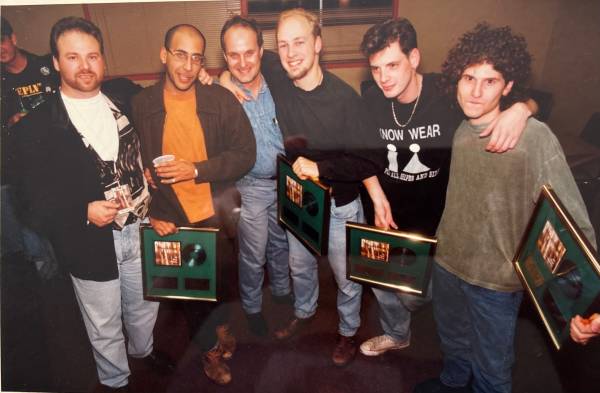
What stage did you add The Watchmen to your roster?
It was around ’91. Ralph James, he was an agent in Winnipeg at the time, kept coming to me with this band, “You gotta sign them; they’re perfect for you.” Eventually, we went and saw them at the Horseshoe, and Allan and I were like, “Yeah, these guys are ready.” We kind of did the same template [as we did for The Hip]. We made McLaren Furnace Room record with them [1992]. We put together the financing for them. We had a production company called Sumo Productions. We always saw it as a vehicle to get records out, so we could eventually get the artists signed to a label. We licensed it to MCA Canada because we had a relationship there because of The Hip. And we had some success with the first record and then their next record was In The Trees [1994] and we had a lot of success with that record, gold records and platinum records. By the way, prior to The Watchmen, we also managed The Jitters, and while I was managing The Hip and The Watchmen, I was also managing Andrew Cash, David Gogo — who we had signed to EMI — and Plasticine Replicas.
At some point Bernie Breen came in.
Allan and I wanted to expand and we thought bringing in another manager was the best way.
Bernie was a childhood friend of the guys. We had him as a production manager on a tour in 1992. He wanted to be in the business so we helped him get a job at Feldman [then called SL Feldman and Associates] and said, “Look, you should learn the agency side of the business first and once you do that we’ll see about bringing you in to be a manager.”
My main acts by then were The Hip, The Watchmen, and Andrew Cash and had just started managing Big Wreck. My style of management is very hands-on, so I wasn’t gonna sign like 30 acts, but we had seen Ian Thornley [Big Wreck’s singer-guitarist] and thought, “This guy’s a star; we need to take this on.” A little later, we went to Bernie and said, “We’ll bring you in and we’ll start a company with you; you’ll own a piece of your company, and you’re going to work with Big Wreck and you can go out and sign other acts.”
Your career could be a book. It’s the 40th anniversary of The Tragically Hip this year. You managed them initially for 17 years, from 1986 until January 2003. What do you consider your key accomplishments and highlights from that first period of managing The Hip?
There’s so many highlights. First arena tour in 1995, that was a big deal, and before that, Another Roadside Attraction [The Hip’s touring summer music festival] in ’93 [’95 and ‘97]. That was something we thought of, pitched it to the guys at CPI [Concert Productions International]. Nothing like that had ever been done before. Lollapalooza had come to Canada and played Montreal, Toronto, and maybe Vancouver, but no one had done one right across the country like that. Ralph James was my ipso facto agent at the time at The Agency; we went in and sat down with all the people at CPI, all the territories, all the guys from across the country, and said, “Here’s our idea,” and Michael Cohl went, “This is fucking awesome; let’s do this.” So, to think of something, and then go out and actually execute it, and then see it happen, and make money, as a manager, it doesn’t get any better than that. During that time [the first 17 years], we had two diamonds [then certifying 1 million albums sold]. We were diamond for Fully Completely and Up To Here, but also going to Europe and headlining Parkpop in front of 250,000 people in Holland; selling out multiple nights and venues in America; breaking records, like five nights at the House of Blues in Chicago, had never been done. Things like that.
Allan, at some point, stepped behind the scenes of the management company.
Allan sold his polling company in the early ‘90s but still worked for the new entity. In ’94, when the band delivered Day For Night, they kind of got into a tiff, the band and Allan, and Allan just said, “I’m just gonna be your partner. I’m not gonna be involved in the day-to-day.” So I ran the management company.
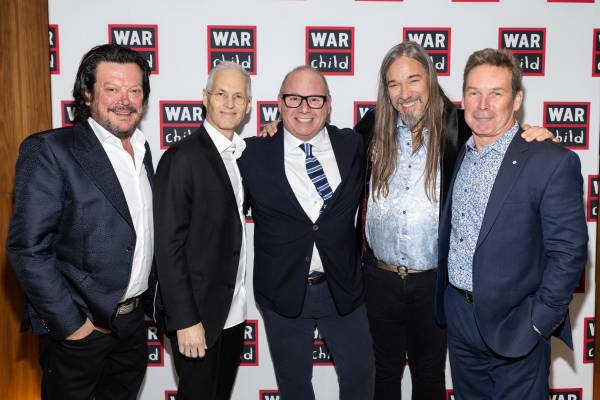
How did your split with The Hip go down?
We sat down in a room, and the band said they wanted to find a new manager, so that was that. [The Hip went with Macklam/Feldman Management, then in 2005 with Breen, and Patrick Sambrook].
Did you see it coming?
Things were pretty dysfunctional. Let’s just say that. I don’t really want to get into all the things to be honest because it’s really covered in the doc, and I don’t want to give away the doc.
In 2003, you started managing Moe Berg (The Pursuit of Happiness], who you manage to this day.
He approached me to look after his career as a producer/writer, and that ended up me also looking after TPOH. We just released an acoustic EP of some of their biggest hits last week. They play shows when the right show or offer comes in, but it’s not a full-time touring act. All the members have other gigs.
You were still managing Gord Downie.
I managed Gord for one solo record [2001’s Coke Machine Glow], when I was still managing the band, and one after [2003’s Battle of the Nudes].
In 2003, you experienced fame yourself on billboards, on bus shelters, when you became a judge on Canadian Idol for all six seasons. Tell me about that landing in your life at that precise time, how it affected your business as a manager, and did you enjoy it?
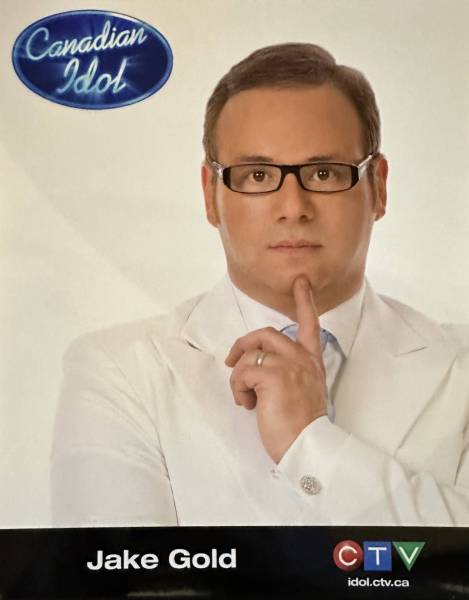 Idol never would have happened if I was still managing The Hip. It was a great learning experience. I learned how the television business worked. I made all kinds of contacts in the TV world. It definitely helped me on the management side, but it also helped me as a person. It made me better at what I do.
Idol never would have happened if I was still managing The Hip. It was a great learning experience. I learned how the television business worked. I made all kinds of contacts in the TV world. It definitely helped me on the management side, but it also helped me as a person. It made me better at what I do.
Did you like seeing yourself on gigantic billboards?
That was the least favourite part for me, by a mile [laughs]. Spending your whole life behind the scenes versus being in front of the camera. And, it was interesting, Mark Lysakowski, the supervising producer of the show, he pulls me aside and he goes, “Jake, you gotta stop managing.” [laughs].
You were still managing.
But he [Mark] wasn’t referring to that. He was referring to how I was doing things on the show because I would like, “Why are we doing this?” “Why are we doing that?” And they would be like, “Just be the fuckin’ talent.” [Laughs]. That was a hard thing to just learn how to just show up [Laughs].
Also, that’s not the way you had discovered talent. Yours came up through the clubs. What’s your view of that format to discover talent? It has lasted.
I never really worked in the pop world. It’s generally a pop-type format. A lot of successes that came out of that world, from around the world — because the show [Idol] ended up being licensed in 40 countries — were the pop world where you’re having other people write the songs. It was never my forte. I didn’t work in the pop world; I worked in the rock world. Back then, the rock world was you put out music, you toured, you put out videos and you toured and toured, and you built a following. It was definitely different for me, but people would say to me, “What’s your talent?” and I’d say, “I can spot charisma.” So I still knew how to spot charisma.
But what is your personal view on the current methods of music discovery, for a manager, for A&R, for a publisher?
When you think about it, though, it hasn’t really changed that much. We were doing an independent thing, trying to get a following to get the attention of major labels. The only difference is the source of how people discover music today, but you still have to have a following. You can build a following by going out on the road or you can build a following by going out on the internet and having people discover your music online. Word of mouth is still word of mouth. It’s just people have an easier way to spread the word than they did before.
An internet star doesn’t necessarily translate live.
If you have someone who has big charisma, then the rest is easy. Charisma is being a great communicator. And that’s the key. How do you get to make people feel something that they didn’t feel before they saw you? That was the approach I would take when I was doing the TV show. If someone walked in the room and they gave me that involuntary feeling of “Wow, this is very special.” And I remember seeing that with Carly Rae Jepsen. She was one of those people that you just went, “Woah. This is special.”
Idol was cancelled suddenly. How did you get through the next few years? Were they lean?
Lean in terms of revenue coming in? Yes and no. I always managed to keep my head above water and I made money so that wasn’t an issue. I owned property. I was still in management.
You were managing your fellow Idol judge, Sass Jordan.
Yeah, and I was managing the Cliks. I was doing all kinds of stuff. I was consulting people. Crash Karma [past and current members of I Mother Earth, Our Lady Peace, and The Tea Party] had approached me and we had some success.
[Disclosure] I brought them in to see you [laughs].
Yeah. So, it was always something that was keeping me busy. And then I signed Adam Cohen in 2011. Had a couple of gold records together. That was a great experience. Toured all over the world for five years. After Idol, I also managed Scarlett Jane. Did two records together and many tours, then the members went back to their solo careers.
In 2017, Gord passed away. When did you start talking to the guys about this archive of Hip material that essentially only they and you know exists and what could potentially be done with it?
I had gone to six of the shows in 2016, the final tour, and reconnected. When Gord passed away, a couple of years later, around 2019, they were starting to think how do we find all this stuff and where is it? They were reaching out to me to say do you remember where this was or that was? I was like, “Yeah, what do you need?” They were my friends; I was going to help them. I wasn’t looking to manage them, but I had the historical knowledge. And at some point, in May of 2020, Bernie and Patty decided they didn’t want to do it anymore and someone wrote me and said, “Hey did you hear?” And I said, “No.” So I wrote one of the guys and said, “We should probably talk.” We had a meeting in early June 2020, and we were all in lockdown. We met on a Friday and they said, “We’ll let you know Sunday if we’re going to meet on Monday,” and Sunday they wrote and said, “Let’s meet Monday” and we met Monday and said, “Let’s do this.”
I haven’t seen another manager in Canada, or another Canadian act, have such a diverse release of projects after a band is no longer active. Maybe Rush.
We’re not done yet.
This isn’t just, let’s do a box set or a previously unreleased song or a demo version. These are new creative ventures. A children’s ABC book, an Amazon Prime doc series, and some other cool projects you will be announcing soon.
It’s interesting about the picture book. We weren’t thinking of that. There was another guy named Drew Macklin, an entrepreneurial guy. He reached out to me and said, “I have this idea for a book.” And I was like, “Great idea. I could steal it from you [laughs] or we could do it together.” I went to the guys, and they loved the idea and I went to Drew and said, “Let’s do this together, but I’ll go make the publishing deal and I’ll include you in it, but you need to do the whole thing. You need to oversee it; find the illustrators and we’ll promote it.” So we made a deal with him. It was his idea and people liked it. We’ve already sold over 11,000 copies, which in Canada is ridiculous. A best-seller is like 3000 or 4000. It’s still going strong. I think, we’re going to end up selling close to 20,000 which is a ton for a book.
The doc was something I had always thought of, but when I came back into the fold — the Downie family wanted me to look after all the Gord stuff too; Gord’s solo stuff is a separate business unto itself — and I was talking to [Gord’s brothers] Mike and Pat Downie a lot. Pat sits in on the meetings with The Hip. We meet every two weeks and Mike said, “I really want to make the doc.” And I said, “You’re right. We definitely need to do this.” So, I went to the guys, “Do we want Mike to make this? Do we want someone else to make it?” And they said, “Let’s get Mike to make it.” So I said to Mike, “Let’s go. Let’s put it together. Put your pitch deck together and let me go out and find us a deal.” I approached Amazon Music {Mike Lawless, then with the company] and said, “Who are the guys making your docs in LA?” and [he] put me in touch with those guys. Mike Downie and I met with the head of unscripted for Prime out of LA, CJ Yu, although he’s no longer there, and the guy in charge of New Zealand and Canada, Tyler Bern. We talked to some of the others and Amazon had the best set up for us.
When is it out?
It’s slated now for late September, early October. We don’t have an exact date yet.
Anything else you can talk about?
We announced the band are Record Store Day Canada Ambassadors for this year. We have a live record coming out on April 20 [The Hip’s 1993 show at New York’s CBCB’s for the first time on vinyl].
I gotta ask: Everyone loved when Leslie Feist sang with The Hip for the 2021 Juno Awards. I’m sure fans want to see the band united again onstage. I know some have solo projects. Will that ever happen?
As the guys say, never say never.
Is it something you personally would like to see?
I think the fans would really enjoy seeing it. We see a lot of stuff from the fans online. They just want to hear the songs. I don’t think there’s a consensus among the band to say, “Let’s go do this.”
Lastly, you’re getting inducted into the Canadian Music Industry Hall of Fame.
Isn’t that why we’re doing this story?
Looking back on your career, how do you feel about the honour?
I’ve been doing this now 43 years. It’s nice to be recognized, especially the list of people who have been inducted into this Hall of Fame in the past. There’s a lot of managers in there, who over the years have been sometimes mentors, sometimes people that I’ve looked up to — Ray Danniels, Bruce Allen, Bernie Finkelstein, to name three guys who are titans in the business, who carved a path when no one was really doing it. It’s great to be recognized amongst some truly important managers, not to mention some of the other people who have been included like Ralph James and Randy Lennox. And so, to be on that list is pretty cool. There were moments when I thought, “Well, it’s never gonna happen, if it hasn’t happened yet,” but I guess I was wrong. It’s not something that you strive for, but the recognition is really appreciated. I’m still doing it.
So no interest in retiring? You’re going to be managing the doctors and nurses on your deathbed. “Go do this; go do that.”
[Laughs]. That’s probably what’s going to happen.


